When I met Karlyn Beer she was a graduate student in the University of Washington’s Molecular and Cellular Biology program working at the Institute for Systems Biology under Dr. Nitin Baliga. She was studying how microorganisms respond to environmental change, using the salt-loving extremophile model organism Halobacterium salinarum. This work mostly kept her in the lab running copious growth experiments, and learning computer programming and modeling, but she also managed to venture out into the field, to the Halo hot spot: Utah’s Great Salt Lake.
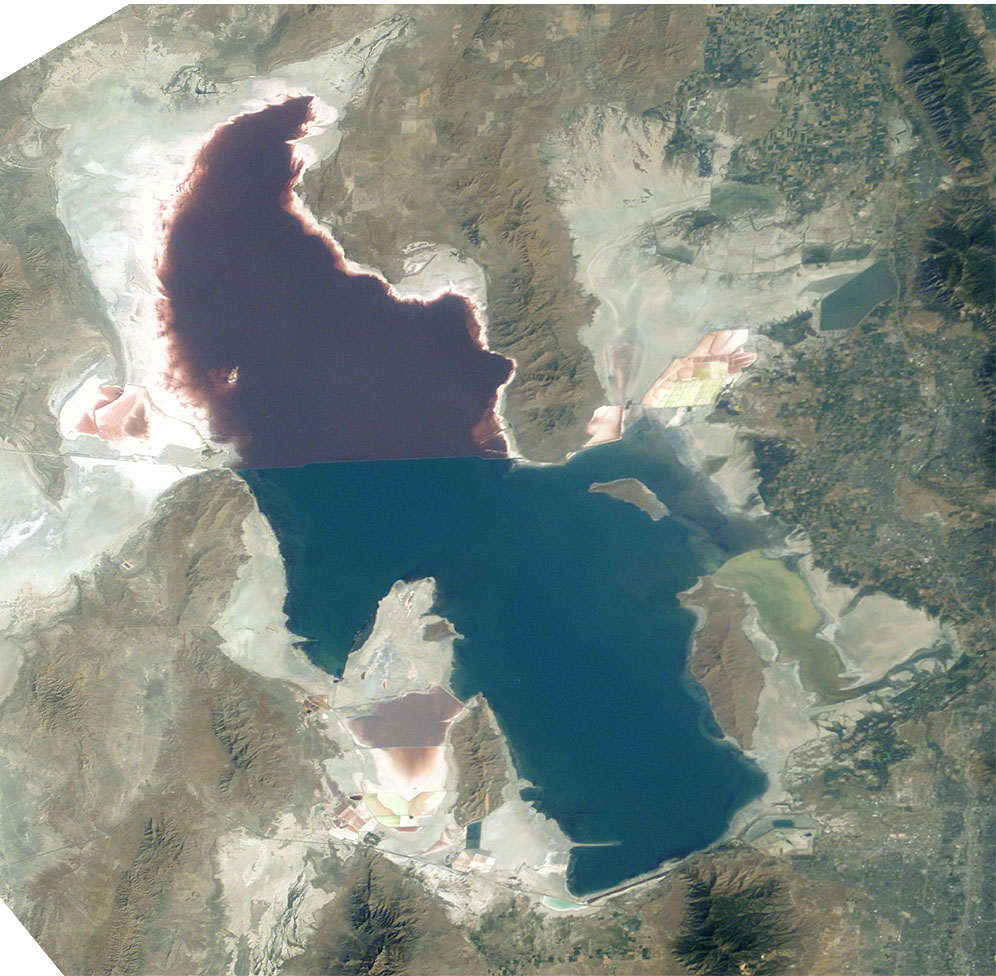
The north arm of the Great Salt Lake is purple/red due to the abundance of Halobacterium living in the hyper saline water. Image source: Wikipedia
Within the five short years I have known Karlyn, she has completed her graduate degrees, earning an MS in Epidemiology with her thesis focusing on unique gut microbial communities associated with fiber and starch intake in healthy premenopausal women, and a PhD in Molecular and Cellular Biology with dissertation work focusing on Phenotypic and genomic stability in a halophilic model organism.
Immediately after earning her PhD, she traveled the world for eight months on a Bonderman Travel Fellowship mostly using a bicycle to explore ten countries spanning three different continents. Karlyn has always been interested in public health and epidemiology in developing countries and this was an excellent opportunity for her to supplement and enrich her academic public health education by visiting people and places where infectious disease is much more prevalent and less easily managed than in the US. She visited, in order: Nicaragua, Colombia, Ecuador, Peru, Philippines, Vietnam, Cambodia, Thailand, India and Turkey.
Not only that, upon returning to the US she landed a job as an Epidemic Intelligence Service Officer for the Center for Disease Control and Prevention (CDC) and was sent to Liberia, West Africa to provide Ebola technical assistance to the Ministry of Health and county health officials during the 2014 Ebola epidemic. She now resides in Atlanta, Georgia with the CDC’s Waterborne Disease Prevention Branch.
- Karlyn in Liberia helping with the 2014 Ebola outbreak.
- A muddy traffic jam resulted in the team sleeping in the car overnight. The next morning, as people were digging the truck out of the mud, a mini dance party complete with music began and ladies came out selling food.
This is just a short synopsis of the life and work I’ve witnessed her do during the time I have known her. Its impressive to say the least and this Woman Scientist has a lot of excellent reflection and advice to give to us all in her interview:
Let the Interview Begin!
1. What is your earliest memory of being hooked by science?
I’m not sure I was ever aware of something called “science” that hooked me, but I think I was always curious and always interested in knowing new things. I picked up all the bugs, I brought frogs and toads inside to the dinner table and one time I got a book of science experiments from the library. Also, I licked a pole in the middle of winter in Minnesota and my tongue got stuck…that was a hard lesson about phases of mat ter. I got hooked on public health after reading The Hot Zone by Richard Preston and Living Terrors by Michael Osterholm.
2. Who inspired you to go down the path of science?
It was a combination of people and experiences that probably led to my signing up for a biology major as an undergraduate. My biology teacher in high school was a quirky, enigmatic guy and I loved how he taught us about life in terms of systems and interrelationships. About the same time my mind was being blown in biology class, I learned about Mad Cow Disease and started reading books about all kinds of pathogens and infectious disease. At one point in high school, my parents suggested I call my state epidemiologist to learn what it might be like to be a disease detective as a career. Dr. Mike Osterholm kindly talked with me about his work, and made a comment that I took to heart: He told me that public health needed more epidemiologists who were also scientists, who understood the biology behind the disease. I thought that sounded pretty exciting so I decided to study microbiology as an undergraduate at Cornell, and my research mentor there inspired me to pursue a PhD after graduating.

Research barn calf. Don’t worry, this one doesn’t have Mad Cow Disease, although I’m sure Karlyn is thinking about infectious diseases regardless.
3. What type of science do you love to read about?
I sign up for all sorts of science-related email lists and table of contents updates from journals. I tend to look for public health and disease-related literature, but I can never pass up a story about reptiles or nutrition or the gut microbiome. My favorite science book I’ve read lately is Spillover, by David Quammen… it’s all about zoonotic diseases that have been transmitted to humans at some point in history, or might at some point in the future. HIV, Ebola, and even Malaria have zoonotic parts of their natural histories!
4. What kind of scientist do you consider yourself?
I’d like to think I’m a big mix of many kinds of scientists, and I love that I have been able to do so many different things so far. I’ve worked as an ecologist, a microbiologist, a molecular biologist, an animal nutrition scientist, an epidemiologist, a data scientist, a field biologist and a very amateur herpetologist. I think there are incredible overlaps among all of these. So much overlap that we might be better off if we didn’t define different kinds of science so rigidly. Maybe that’s why I love public health…it’s an amazing mixture of many kinds of scientists, all working together toward a common goal.
5. What were some preconceived notions about science or scientists and did that change once you explored your career in it?
When I was a kid, my idea of a PhD scientist was someone who wrote a book about something that no one else knew about. I quickly wrote off the idea of a PhD, because I figured that by the time I got old enough, there would be nothing left that was unknown to even write about. Once I actually grew up, I realized how much there is to learn, and that we definitely don’t know as much as I’d thought as a kid. There are so many unanswered questions, and the trick is to find someone to pay you to answer the ones you like the best.
6. What were some big compromises or struggles you experienced?
I think the biggest compromises and conflicts came when I started my PhD and realized that my idea of the perfect project, supervisor and lifestyle did not all come in one package. When I started grad school, I thought I knew exactly what I wanted to study and that nothing else mattered. I just knew I would find the perfect project in the perfect lab with the perfect advisor! Of course, this was ridiculous. In reality, the colleagues and supervisors you work with are tons more important than the particular project you’re working on. Grad school is a time for gathering tools and skills through apprenticeship with good scientists, and your toolbox and colleagues are much more important and far-reaching than the title of your dissertation. In fact, I wasn’t asked about my dissertation work at all during my first job interview following my PhD.
After graduate school, I had to start coming to terms with the time and money I had spent on my education. It has all been worth every moment and every penny, but becoming a scientist means a big sacrifice in earning potential and income during the years you’re in school. I learned that its OK to consider this aspect as you craft your education and your career. I’m happy with my decisions, but nothing spells reality like a student loan payment half as big as your rent check!
7. What keeps you motivated when you’re feeling the drudgery? What keeps science FUN for you?
Like any job, science can get boring and frustrating. Realistically, you’re not accomplishing something good for the world every single day but I stay excited and motivated by focusing on the end goals…whether its a paper, or a talk, or someone else’s project I helped to improve. Teaching others and helping with colleagues’ projects is incredibly motivating too.
8. Who do you aspire to be like?
My science hero is Rita Colwell. I’ve never met her, but her work on Vibrio has spanned from the basic science of pathogenesis to practical solutions for fighting Cholera in Bangladesh. She is an accomplished scientist who has embraced the world of policy and advocacy alongside her work as a biologist. It’s simple to sit in an ivory tower and publish papers, but to me, science belongs in the service of action and scientists should not shy away from policy and advocacy when their results lead them there.

Dr. Rita Colwell in the lab. Rita holds a B.S. in Bacteriology, M.S. in Genetics and a PhD in Oceanography. She also served as 11th Director of the United States National Science Foundation for six years.
Outside of science, I aspire to be someone who is generous with their time and compassion for others. For me, a person named Monty Thomas embodies these qualities and sets an example for me every time I feel rushed, or too busy. Monty was director of psychosocial support at an HIV clinic in Durban, South Africa, and we met when I was an undergraduate study-abroad student in 2004. I was struggling setting up interviews with HIV support group members about their experience in the hospital’s choir. Monty was busy with a million things many times more important than me. Still, he would answer his phone “Hi, this is Monty… how can I help?” and he would invite me into his office even as he was finishing a meeting with someone else. I did get to interview the support group members, and I learned so much more about public health because of him. I feel like I have a lot to pay forward, thanks to Monty and so many other mentors who have guided me along the way.
9. Advice you’d tell young students; Some key points you wish you knew before you set out.
- Find good mentors, science is always a collaborative effort.
- Enjoy the journey/process just as much as the end results.
- No one cares about your project more than you do, so own your work 100%.
- It is possible to be a smart and respected person who often says, “I don’t know” .
- Money doesn’t buy happiness, but that doesn’t mean you don’t need it and you don’t have to think about it. It follows that the earlier you think about it, the less you have to worry about it later.
- In discussions, arguments and debates with others, there is always room for uncertainty. Rarely does anyone have enough information to truly analyze the issue at hand. Embrace this uncertainty and approach discussions as a group effort to learn more, rather than an opportunity to prove people wrong.
- Don’t take yourself too seriously!
- Don’t take too much advice from others!!
10. Any other information you want to highlight?
Science will give you the best friends anyone could ask for, and I don’t mean lab mice and petri plates! Science is a magnet for people who are excited about life and the world around them, and I’m glad to have had such an awesome group of colleagues for so long.
Bonus
I don’t want this interview to end without also mentioning her non-scientific career endeavors. From a very young age, Karlyn has been in love with reptiles. Turtles, lizards, snakes, you name it. She once arrived at a Jungle-themed party wearing her pet snake around her neck! Talk about costume commitment.
She is also an avid cyclist and has built her own bicycle. As you read, she traveled the world riding her bike as much as she could. She also commutes frequently via bike and she has even raced cyclocross.
Last little secret, if you happen to love folk contra dancing, you may see Karlyn dancing as well. She’s even been known to do a little calling!
Want to read more from Karlyn? Check out the travel blog she kept while on her journey’s with the Bonderman Fellowship.
Did you like this interview? Please share it with anyone you know who might find inspiration from Karlyn’s words.
Interested in submitting an interview for Woman Scientist? We’d love to have your story!
Please follow this link to fill out the interview questionnaire! Know someone who would be a great feature? Send them the link too!

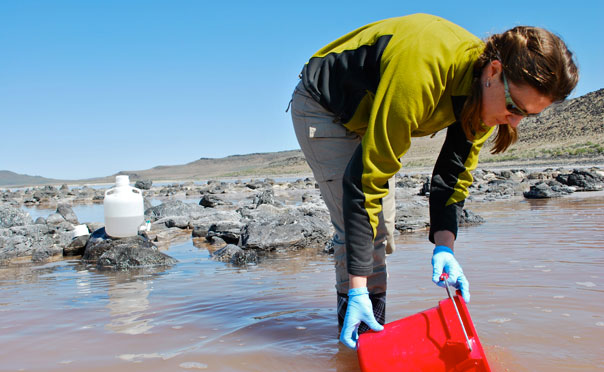
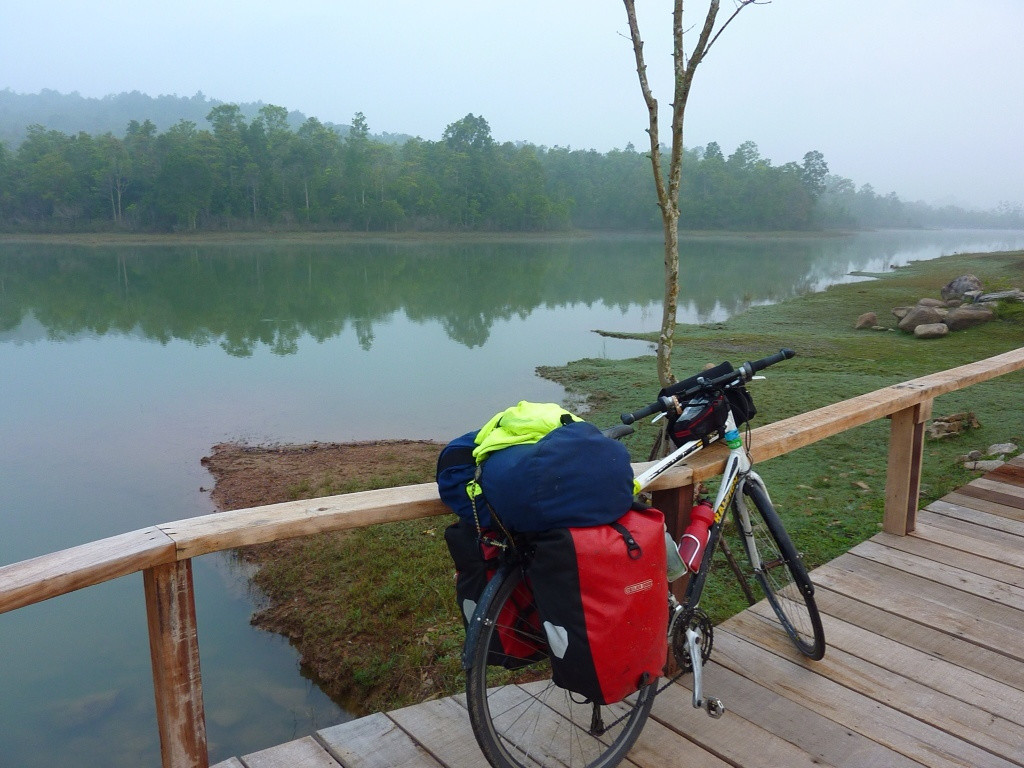
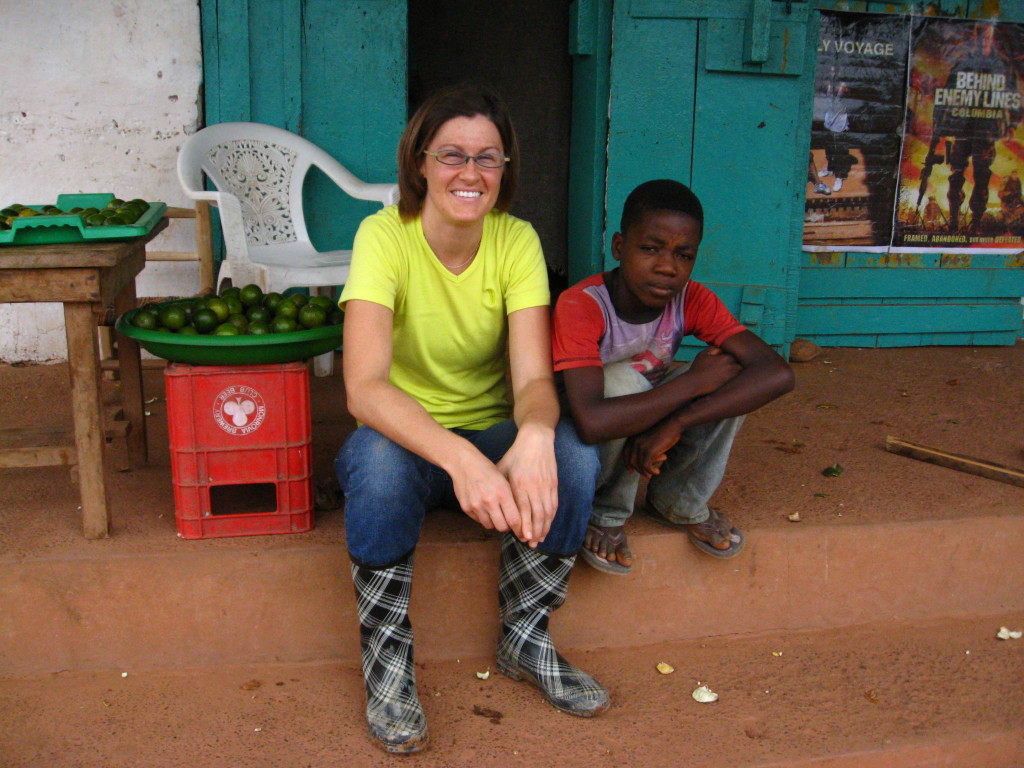
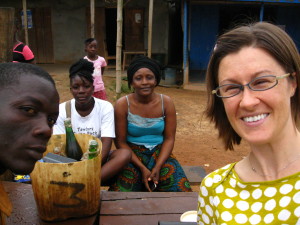
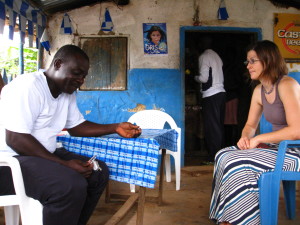
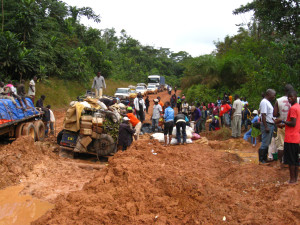
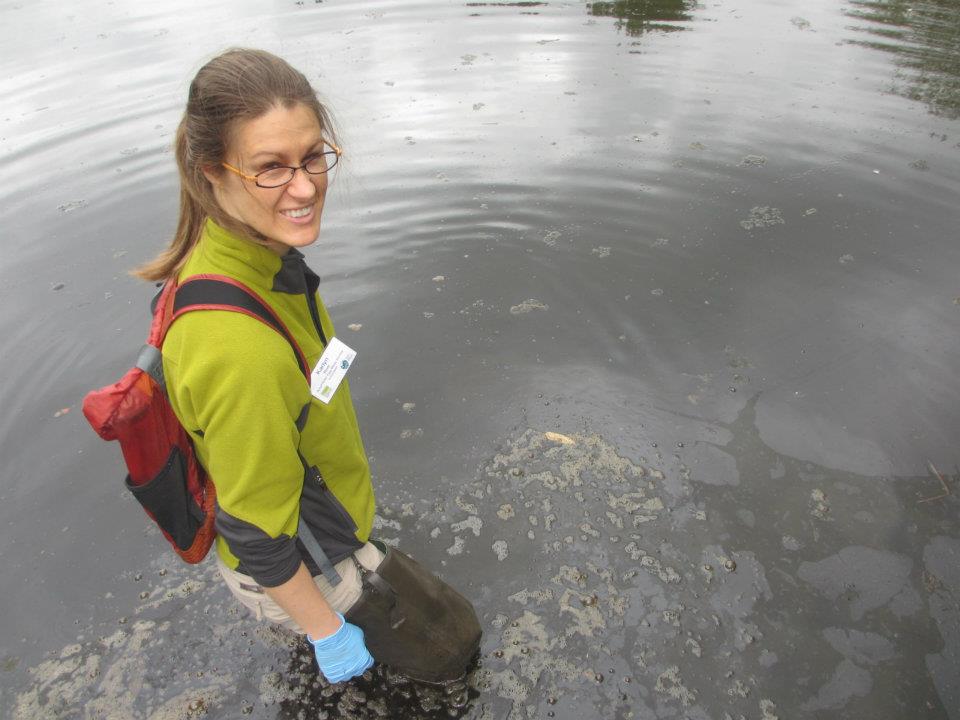
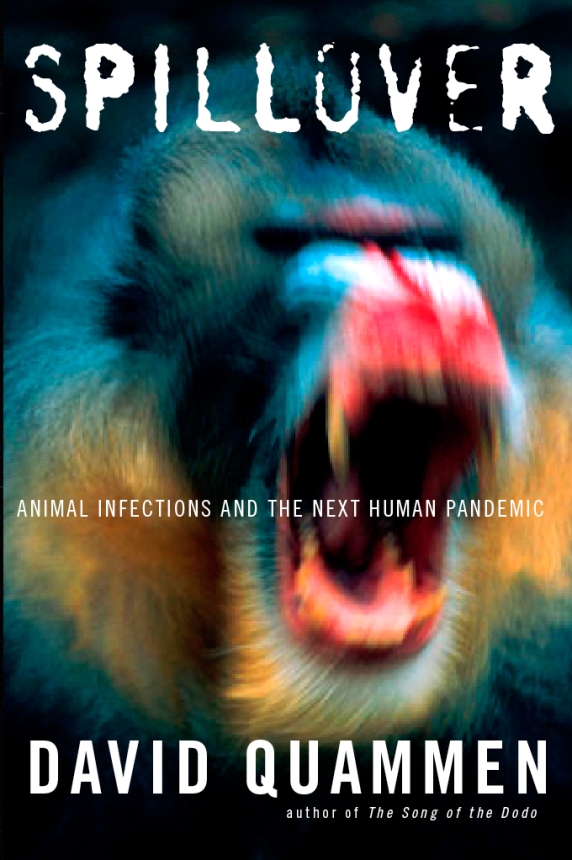
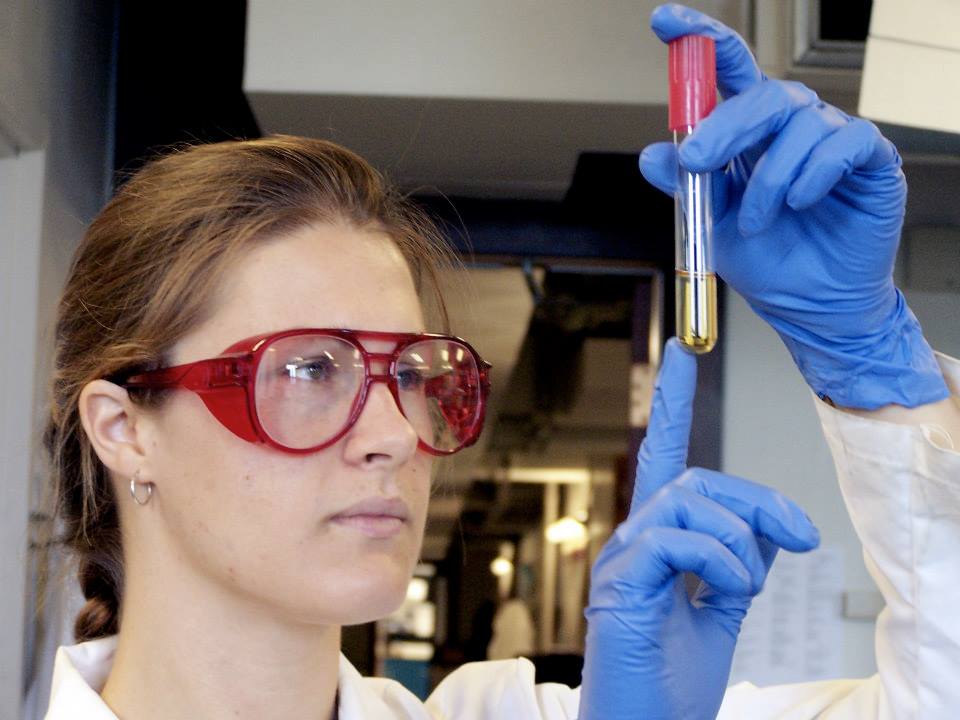

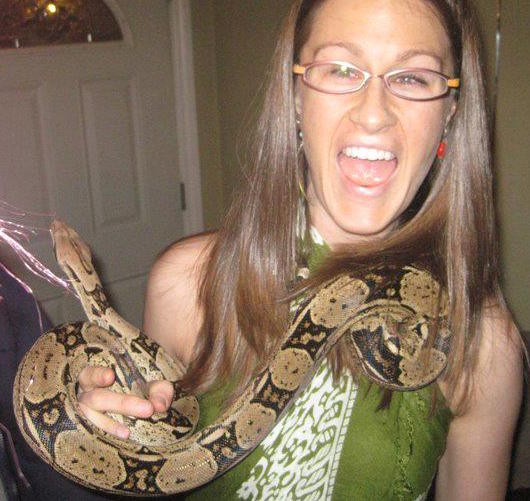
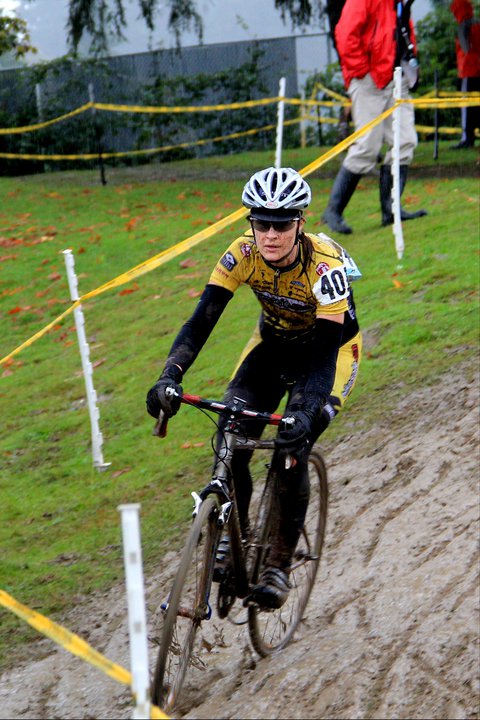







































Ccongratulations, Karlyn that is a terrific interview
Proud to know this young lady. Keep it up Karlyn!
Aunt Mary forwarded this article to me. It is the best Christmas present ever.
Loved every word and you, too. Keep up the great work. pat